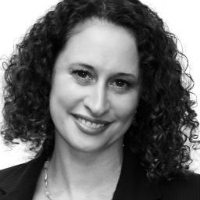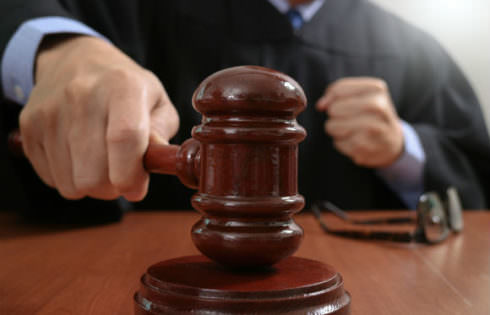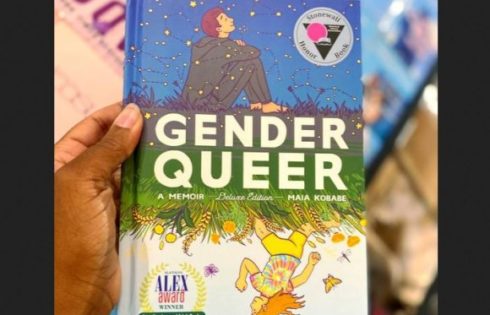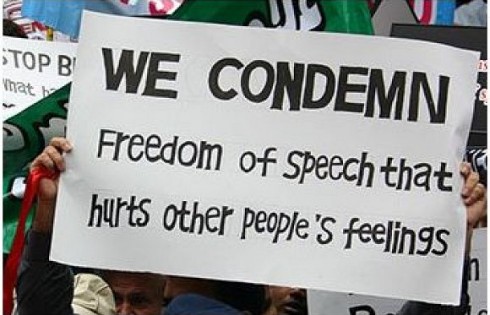
‘Culturally insensitive’ behavior rebranded as lack of consent
Williams College suspended a male student based on his failure to pursue a relationship with a female student after “kissing and touching” her, according to a lawsuit against the private school.
Both the unnamed Hispanic student “John Doe” and his accuser “Sally Smith” are foreign students. She accused him of sexual misconduct not because he acted without her consent, John claims, but because he was “culturally insensitive” after their amorous encounters.
Adjudicators misrepresented the evidence in the record, ignored Sally’s messages to John expressing positive feelings about their first amorous encounter, and didn’t even correctly apply the “preponderance of evidence” standard, the suit alleges.
John claims that he was subject to several disadvantages during the investigation and hearing, including that Williams refused to judge the credibility of Sally and witnesses “face to face.” Sally also physically threatened him but the college did nothing, he alleges.
Williams even refused to let John offer evidence that Sally had a history of making “repeated accusations of cultural insensitivity,” casting doubt on her accusations against him.
The college wrongly found John responsible based on “a flawed disciplinary process” where gender bias was a “motivating factor,” the suit claims, citing biased and stereotypical training materials for the Title IX panel.
The accused student claims breach of contract, breach of the covenant of good faith and fair dealing, and violation of Title IX. The court docket shows that U.S. District Judge Mark Mastroianni granted John permission to continue his litigation under a pseudonym.
Mastroianni previously approved a similar lawsuit against another Massachusetts private college, Amherst. It settled the lawsuit rather than allow its disciplinary procedures to be examined in a trial.
Williams College spokesperson Greg Shook did not respond to several requests for comment on the lawsuit, which was filed Feb. 18.
College allegedly ignores physical threat by accuser
While Sally claimed that John did not obtain her “affirmative consent” in the amorous encounters – which apparently stopped at breast-touching – it was really her “conservative religious values” that motivated the accusation, the suit claims.
The college Code of Conduct expressly states that “consent once given may be withdrawn at any time,” but Sally tried to withdraw her consent after the encounters, as judged by her messages to John, he says.
Sally initiated the relationship with John in November 2016, telling “a number of her friends” before their first dinner that she was interested in him. She told him on a walk after dinner that she had “never kissed a boy” owing to the “restrictive cultural norms in her home country.”
John asked for Sally’s permission to kiss her in his dorm room, and she agreed. The kissing escalated to “consensual touching” while fully clothed.
Two days later she sent him a message saying “I’ve liked you quite a lot” and calling their amorous encounter “amazing.” She apologized for “being so weird and awkward the entire time.”
Though she values “the emotional aspects” of the encounter “over the physical ones, I’ve been feeling so different and liberated after it,” Sally wrote. “I’ve not been this happy ever since I started college.”
When he responded four days later, John showed less enthusiasm, saying that they should “hang out at some point next week” but warning that “I’m just going to be super busy until the end of the semester.”
MORE: Judge vindicates student expelled for rape; accuser blabbed to HuffPo
They didn’t talk again until January, when Sally interviewed for a position in a campus organization where John served in leadership. She asked to speak with him before learning she got the position, which he communicated to her at their meeting in his dorm room.
Sally “expressed anger about what she saw as Doe’s cultural insensitivity around their prior interaction” – failing to seek a romantic relationship with her after showing physical affection.
While John told Sally he was “emotionally unavailable,” he again asked to kiss her, and she agreed again. The suit claims that he “asked Smith before initiating any new touching and did nothing without her consent.”
She rejected his first request to touch her breasts but approved his second request a few minutes later.
Several days later, John asked Sally why her friends were “treating him strangely.” She told him he had “emotionally manipulat[ed]” her, “tak[en] advantage of [her] lack of knowledge of American cultural norms” and “disrespect[ed]” her own cultural norms.
But what panicked John was when Sally allegedly said she “had lots of people ready to hurt him.”
Though Ninah Pretto, associate dean of international student services, told him that this could be construed as harassment, the director of sexual assault prevention and response, Meg Bossong (below), told him she couldn’t help. He got the same response from “[e]veryone” else he asked for help.

Advisor encouraged her to see incident as sexual assault
Three months later – after Bossong talked to her “junior advisor” – Sally filed a formal Title IX complaint against John alleging both November and January encounters were nonconsensual.
The notification letter he received from Dean of the College Marlene Sandstrom was short on detail, including “the nature of the sexual interactions,” specific dates and locations, and even whether Sally claimed she was “incapable of consenting.” It also did not specify which code provision John allegedly violated.
As a result, he could not intelligently prepare for his meeting with the outside investigator hired by Williams, Allyson Kurker. (Her name shows up in at least two other Title IX lawsuits against Williams by accused males.)
Because Sandstrom barred John from reaching out to potential witnesses whom he may have spoken to about Sally, one of the witnesses he recommended to Kurker turned down the interview, apparently unaware what it was about.
Kurker also violated Williams policy by not giving John the opportunity to suggest questions to ask witnesses, the suit claims. She withheld details about testimony by Sally’s witnesses:
Accordingly, the College completely deprived Doe, for the entirety of Ms. Kurker’s investigation, of all information regarding the identities of five of the eight witnesses interviewed, the substance of their statements, and the topics about which they were interviewed.
MORE: Williams College employee falsely accused student so she wouldn’t get fired
 The draft report issued by Kurker (left) disclosed for the first time that Sally had accused John of using force and leaving her with “bruises,” while excluding “many significant facts” John had provided. This made John wonder about “similarly important facts” that Kurker might have left out from her other interviews.
The draft report issued by Kurker (left) disclosed for the first time that Sally had accused John of using force and leaving her with “bruises,” while excluding “many significant facts” John had provided. This made John wonder about “similarly important facts” that Kurker might have left out from her other interviews.
The deans prevented John from providing his own relevant evidence in response to the report, he claims. One was a series of texts that suggested Sally was initially hesitant to accuse him.
A witness told John’s then-girlfriend, “who was not interviewed in the investigation,” that Sally had told her she “still loved” John and did not want to “get the deans on this.” The witness also said that Sally’s junior advisor – a sort of live-in mentor for freshmen – was encouraging Sally to accuse John of sexual assault.
Though Sandstrom justified the ban on the basis that the texts did not “describe direct knowledge of the incident in question,” she allowed the inclusion of texts against John by the junior advisor that also provided no direct knowledge.
Sandstrom also ordered Kurker to remove credibility-related testimony from the report: that Sally’s friends said she was “motivated” to accuse John because he had received “a particular honor” at Williams. The dean refused to tell John how Sally explained the “discrepancy” between her denial and her friends’ testimony. (John speculates that Sandstrom, who is “close” to one of his relatives, mistreated him “in order to shield herself from accusations of favoritism.”)
Pretto, the international dean who initially told John that Sally may have harassed him, banned John from providing evidence that Sally had a pattern of making accusations of “cultural insensitivity.”
Sally allegedly told him during their November encounter that a professor was culturally insensitive, and during their January encounter that a freshman sexually harassed her. Pretto excluded this second recollection.
Trauma-informed training encourages panel to ignore inconsistencies
The main evidence used by the hearing panel – Kurker’s final report, stripped of relevant evidence submitted by John – provided no information that would help adjudicators make credibility determinations, the suit claims.
Though Kurker was “the only representative of Williams who spoke directly” to the parties and witnesses, the report lacked information about “the parties’ demeanor during their interviews … motives to make false statements” and their consistency across various statements.
The panel was also likely operating under a set of stereotypical assumptions based on the training they had received, John claims. He submitted a 90-page training manual on adjudicating sexual assault, dating violence, stalking and retaliation cases at Williams. (Though undated, it cites research from as recently as 2015.)
“These training materials contain anti-male bias and encourage panelists to stereotype men as sexually aggressive and more likely to commit sexual assault,” while also suggesting that panelists can ignore the “intent” of the accused student.
“The training materials include claims about ‘traumatic memory’ suggesting that panel members should ignore inconsistencies in complainants’ accounts,” the suit says. (Such “trauma-informed” techniques have been criticized as unscientific by memory and neuroscience experts.)
MORE: The ‘junk science’ of trauma-informed training
 The three-member panel – all appointed by Sandstrom (right) – eventually concluded that John violated Sally’s consent in January but not November.
The three-member panel – all appointed by Sandstrom (right) – eventually concluded that John violated Sally’s consent in January but not November.
It cited her “discomfort” after the November encounter, as evidenced by her message to John about valuing “emotional” over “physical” aspects of the relationship. The panel ignored the other parts that described Sally as “liberated” by the “amazing” encounter.
Rather than cite contemporaneous evidence that Sally told John she viewed their encounters as nonconsensual, the panel cited witness statements that came to that conclusion.
It also misread an email John had sent Bossong, the director of sexual assault prevention and response, as admitting that Sally “felt that he had mistreated her” in November. In fact, the email conveyed that Sally was upset John hadn’t pursued a relationship with her after kissing her, the suit claims.
‘He should have guessed that she would not want to engage in kissing or touching’
The panel also seems to have invented a provision that isn’t written in the Code of Conduct: that students can’t ask for consent for a particular sexual activity more than once.
Adjudicators found that Sally had “expressed a clear ‘no’” more than once in the January encounter, even though John had claimed he respected her “no” answers while asking for consent again, which Sally granted.
“The panel clearly did not credit Smith’s assertion that Doe engaged in forcible sexual contact over her verbal objections,” John argues: “Instead, it essentially held that he should have guessed that she would not want to engage in kissing or touching under the circumstances.”
Though the deans had excluded much relevant evidence from the report, and John feared what Kurker might have left out, the report did document that Sally had “repeatedly lied” to her friends and tried to mislead Kurker, the suit claims.
She falsely claimed that John was “in a leadership role over her” at the time of their November date, and therefore “she didn’t know how to tell Doe that she was uncomfortable.” Since she didn’t turn over her messages to Kurker, Sally also got away with mischaracterizing her November message to John as a warning to him.
MORE: Amherst settles suit with ‘blacked out’ male it called a rapist
She told several friends that “nothing physical had happened” with John in November and also mischaracterized her November message to John in conversations with them. John alleges she made other false claims to friends about actions he took.
The only way the panel could have found a preponderance of evidence against John was through a “biased and dishonest reading” of the evidence, the suit claims: It was an “arbitrary, capricious, and irrational” finding.
The appeals process was similarly deficient, John argues. After he submitted a detailed list of material omissions of relevant evidence and procedural errors – including Sandstrom’s refusal to recuse herself as a “close” friend of his relative – the appeal was denied by Leticia Haynes, vice president for institutional diversity and equity.
Meanwhile, Williams has done nothing to stop Sally and her junior advisor from spreading false information about him across campus, John says. Title IX Coordinator Toya Camacho allegedly told him it would violate the spirit of the #MeToo movement to stop women from “speaking out about their experiences.”
John’s life and career path – law school followed by politics – is functionally foreclosed by the finding of nonconsensual sexual contact on his record, he argues.
He has already been forced to resign from a “competitive” campus leadership position after others in the organization threatened to remove him. One of his witnesses “was also stigmatized on campus and forced to leave a student organization.”
John wasn’t even able to finish his college career at the three schools that “routinely accept Williams students for temporary study.” In light of his academic credentials, “these rejections were clearly the result of his disciplinary history,” the suit claims.
MORE: Williams College tells students to report ‘pink for girls’ signs as bias
IMAGE: Iakov Filimonov/Shutterstock
Like The College Fix on Facebook / Follow us on Twitter






Please join the conversation about our stories on Facebook, Twitter, Instagram, Reddit, MeWe, Rumble, Gab, Minds and Gettr.